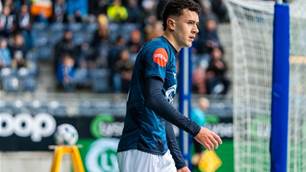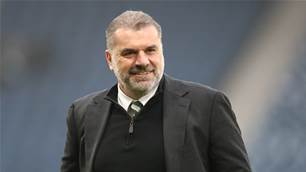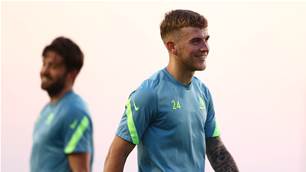EXCLUSIVE: Ahead of LA Galaxy’s clash with Melbourne Victory, the MLS club’s financial chief has offered his views on how the A-League can learn from the US experience in terms of stadiums, ticketing and expansion.
Galaxy’s President of Business Operations Tom Payne has told the official Victory versus Galaxy match day programme that he believes smaller stadiums have worked better in America.
“It's giving the impression of popularity and teams playing to sell-out crowds. This has been very important to the growth of the sport,” he said.
“One that I thought could work in the A-League was a move to boutique stadiums which involves making stadiums more suitably sized.
“When tickets become sparse because you’re selling out games, it’s a great environment and I’d put coming to a Galaxy game up against any other sport in our city from an atmosphere standpoint.
“Before, the team played in the Rose Bowl and got around 18,000 supporters, but when you’re in an 80,000 seat stadium it doesn’t look or feel too good.
“The other thing that has worked well in our league is that some of our teams have built stadiums in downtown areas.
"It’s a great selling point where after work you can go to the bars and then head down to the stadium for the game – we’re a little jealous because we don’t have this, we’re 10-15 minutes out of LA.“
The MLS operates in a similar environment to the A-League with rival codes vying for media space, fans and corporate dollars. However, central ownership of MLS teams is one area that the two leagues differ.
And even though the MLS operates in a much bigger market overall and has been operating around 10 years longer than the A-League – which kicked off in 2005 – they have been committed to expansion.
“Since David [Beckham] arrived, the interest in the league has become bigger and bigger and more international.
"I think the one thing that’s worked in our league is the teams are all basically on the same level relating to how much they can spend on players.
“Now you can also sign a designated [marquee] player above that such as David Beckham, Robbie Keane and Landon Donovan. I think this has helped a lot as the players get paid through the league and the league works as the governing body for each team.”
Galaxy, who play for the MLS Cup final this Sunday against Houston Dynamo, exist in a very competitive sporting market in LA. The Lakers and Dodgers are just two other sporting franchises they are up against.
But Payne believes you need to maintain your product’s integrity despite the tough competition.
“Firstly you never compete with the Lakers, they’re at the top of the ladder," he said.
"But when I first got to the club, I told my staff we’re going to be major league and we’re going to compete with the Dodgers and the Angels.
“In fact I expect us to compete with ticket price standpoint – we aren’t a minor league team so we’re not going to sell tickets for $8.”
Galaxy play Victory on December 6 at Etihad Stadium. To read the whole interview, plus features on David Beckham, Kevin Muscat, Harry Kewell, Daniel Allsopp and profiles on both clubs, see the official match day magazine.
Follow me on Twitter @Aidothejourno
Related Articles

Emerging Socceroos star set to sign for MLS club

Postecoglou set to sign Socceroo at Celtic FC













